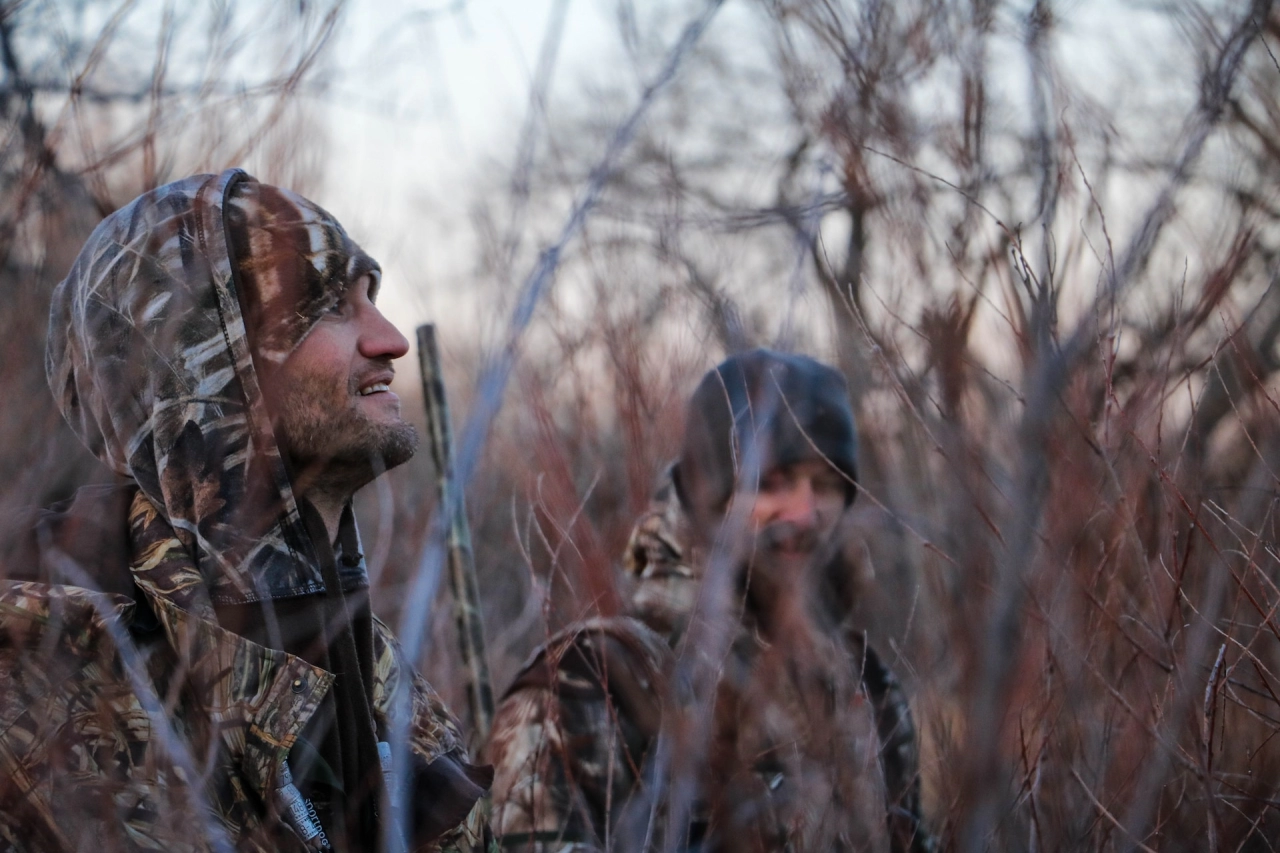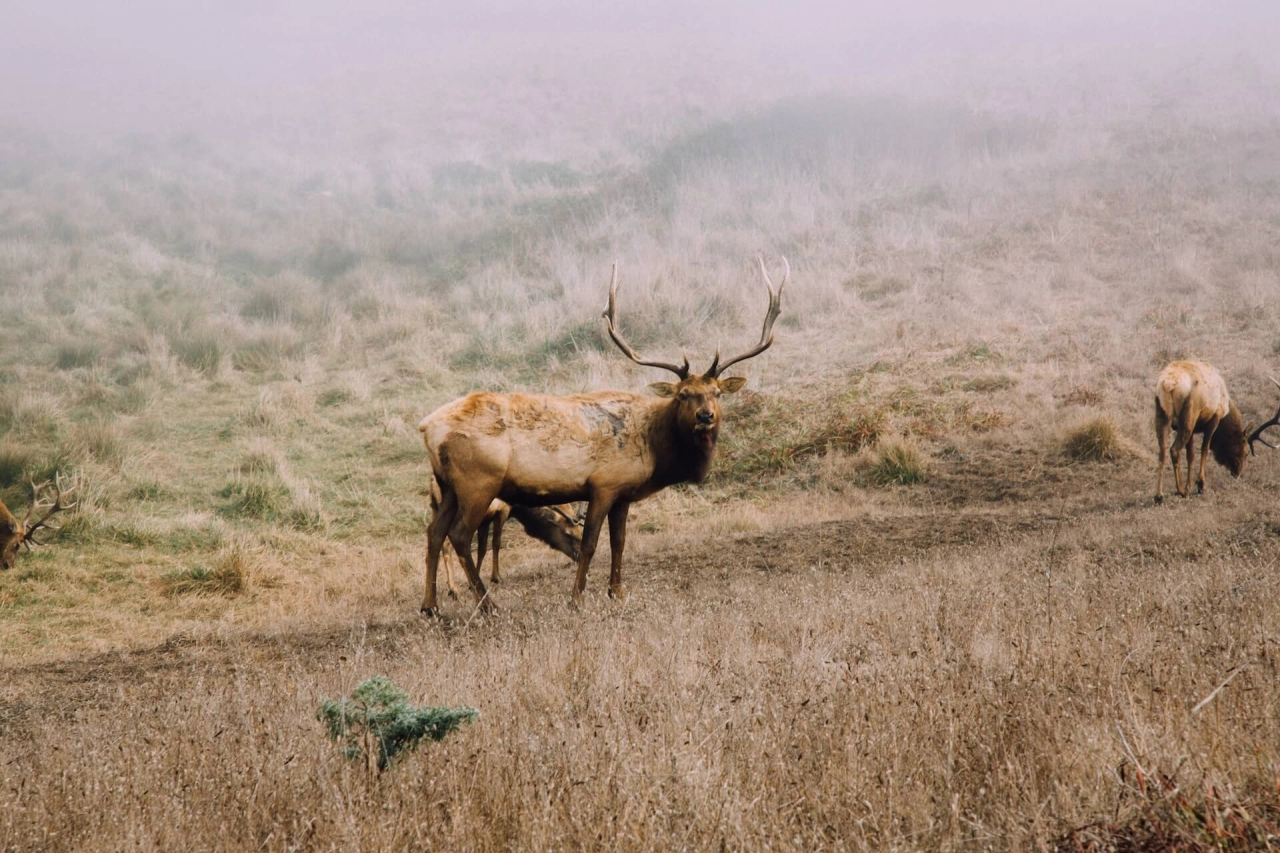Hunting in the United States has been a long-standing tradition, dating back to the days of our forefathers. It's a sport that requires both patience and skill, where every move can make a difference between success and failure. The thrill of the chase and the satisfaction of bringing home a prized game is something that can't be described in words. But hunting is not just a sport; it's an important part of wildlife management in the United States.
In recent years, hunting has gained a lot of attention in the media, with many people having misconceptions about its nature. Some people see hunting as an activity that only involves killing animals, but that's not entirely true. Hunting is a way of life, a means of survival, and a way of keeping the balance of nature in check. It's not just about taking down the biggest trophy; it's about respecting nature and living in harmony with it.
Hunting in the United States is regulated by the state and federal governments, with each state having its own set of rules and regulations. These regulations are put in place to ensure that hunting is done sustainably and ethically, without causing harm to the ecosystem. Hunters must obtain a hunting license, and there are strict limits on the number of animals that can be taken during a hunting season.

Wildlife Management in the United States
Wildlife management in the United States is a complex and multi-faceted process that aims to balance the needs of wild animals, the environment, and human interests. The United States is home to a diverse range of wildlife species, from large mammals such as bears and wolves to small insects and birds. The management of these species involves the careful regulation of their populations, as well as the protection and conservation of their habitats. The U.S. government plays a critical role in wildlife management through its various agencies, which work to ensure that wildlife populations are sustained and protected for future generations. Wildlife management is essential to the long-term health of ecosystems and is vital to maintaining a healthy balance between humans and the natural world.
Hunting Regulations in the United States
Hunting regulations in the United States are established to ensure safe, ethical, and sustainable hunting practices while preserving wildlife populations for future generations. These regulations vary by state and cover a wide range of topics such as hunting seasons, bag limits, and licensing requirements. Scientific research and data play a critical role in the development of hunting regulations. There are also federal laws, such as the Migratory Bird Treaty Act and the Endangered Species Act, that offer additional protections to certain species. Compliance with hunting regulations is important to maintain the balance between human interests and the conservation of wildlife populations.
The Benefits of Hunting for the Environment
Hunting can have positive impacts on the environment, including population control of game species and the regulation of predator-prey balance. Hunters also contribute to habitat conservation by supporting land preservation programs and creating incentives for landowners to maintain natural habitats. Hunting revenues generated by permits and licenses fund conservation efforts and wildlife management programs. Additionally, hunters contribute to scientific research by providing data on animal populations and behavior. Overall, hunting can be an effective tool for conserving the environment while also supporting local economies and traditions.
The Benefits of Hunting for Local Economies
Hunting can have significant economic benefits for local communities. It can generate revenue for local businesses, such as hunting lodges, equipment suppliers, and restaurants. Hunting permits and licenses can also contribute to funding conservation efforts and wildlife management programs, which can benefit the environment and the local economy. In addition, hunting can promote tourism, attracting visitors who come to hunt and spend money in the area. For many rural communities, hunting can be an important source of income and employment, supporting local traditions and ways of life.
The Ethics of Hunting
The ethics of hunting in the US involve responsible and sustainable hunting practices. It requires hunters to respect nature and wildlife, follow laws and regulations, and minimize harm to animals. Ethical hunting also involves being mindful of the impact on the environment and local communities. Hunters must use appropriate equipment, take only what is needed for food, and manage animal populations sustainably. Adhering to ethical hunting practices ensures that hunting remains a respectful tradition that benefits both people and the environment.
The Different Types of Hunting in the United States
There are several different types of hunting in the United States, including:
Big Game Hunting: This includes hunting for large mammals such as deer, elk, moose, and bear.
Small Game Hunting: This includes hunting for smaller animals such as squirrels, rabbits, and game birds.
Waterfowl Hunting: This includes hunting for ducks, geese, and other waterfowl.
Upland Bird Hunting: This includes hunting for game birds such as pheasants, quail, and grouse.
Predator Hunting: This includes hunting for predators such as coyotes and foxes.
Bow Hunting: This involves using a bow and arrow to hunt a game.
Muzzleloader Hunting: This involves using a muzzleloading firearm to hunt the game.
Each type of hunting has its own set of regulations and requirements, and the equipment and techniques used can vary depending on the species being hunted.
Hunting Safety Tips and Guidelines
Hunting can be an enjoyable and rewarding activity, but it's important to prioritize safety. To minimize risks and prevent accidents, hunters should always handle firearms with care, wear brightly colored clothing, and be sure of their target before firing. Additionally, hunters should use safety harnesses when hunting from elevated stands, and bring first aid kits and communication devices when venturing into remote areas. Following state hunting regulations and respecting private property is also essential. By prioritizing safety and common sense, hunters can enjoy a safe and successful hunting experience in the United States.
Hunting Gear and Equipment
Hunting gear and equipment in the United States vary depending on the type of hunting and species being targeted. Some essential hunting gear includes firearms or bows, which must be selected by state regulations and the species being hunted. Ammunition or arrows must also be carefully selected to match the firearm or bow. Other important gear includes hunting clothing, such as camouflage clothing and boots, to help hunters blend in with the environment. Hunters may also use hunting blinds, tree stands, or decoys to increase their chances of success. Field dressing and processing tools are used to prepare the animal for transport and consumption.
The History of Hunting in the United States
Hunting has played an important role in American culture and history, dating back to Native American hunting traditions. Early settlers depended on hunting for survival and traded furs and pelts for goods. The market for fur trading declined in the late 19th century, and hunting became more of a recreational activity. In the 20th century, wildlife conservation and management programs were established to prevent overhunting and protect endangered species. Hunting regulations and licensing systems were also introduced to ensure that hunting was conducted safely and responsibly. Today, hunting remains a popular activity in the United States and is an important part of the country's heritage.
Hunting as a Means of Obtaining Organic Food
Hunting can be a means of obtaining organic and sustainable food. Many hunters prefer to hunt for their meat because they know where the animal came from and how it was harvested. Hunting for food can also be more environmentally friendly than factory farming, as it reduces the demand for commercially produced meat. Additionally, wild game is generally leaner and higher in nutrients than domesticated meat. Hunting can be a rewarding and fulfilling way to obtain organic and locally sourced food.
Conclusion
hunting in the United States is a time-honored tradition that's deeply ingrained in our culture. It's a way of life, a means of survival, and an essential part of wildlife management. Hunting helps to regulate animal populations, provides high-quality organic meat, and supports local economies. But hunting is not just about taking down the biggest trophy; it's about respecting nature and living in harmony with it. So, let's continue to hunt responsibly and sustainably, ensuring that we leave a legacy for future generations to come.
